2023


Plenary Speaker
Prof. Yufeng Guo
Prof. Jeremy Hodgen
Prof. Frederick K. S. Leung
Prof. Takeshi Miyakawa
Prof. Susanne Prediger
Prof. Trena Wilkerson
Dr. Yan Zhu
Prof. Yufeng Guo
Beijing Normal University, China; Winner of the First ZHANG Dianzhou Award in Mathematics Education
Reflections on the Mathematics Integrity and Unit Teaching Research
Abstract
Mathematics is an interconnected organic whole. The discovery of connections between seemingly irrelevant concepts that belong to different branches of mathematics, or the combination of different branches of mathematics to form breakthroughs in solving important mathematics problems, has greatly promoted the progress of mathematics. Emphasizing the integrity of mathematics in the basic education stage, including the connection between primary and secondary school mathematics content and university mathematics content, has increasingly become a focus of current primary and secondary school mathematics teaching in China. This talk will look at specific mathematics contents in primary and secondary schools and discuss the connections between these contents, including connections between primary and secondary school-level mathematics and university-level mathematics. In the end, it is proposed to implement unit teaching to enhance the integrity of mathematics.
Bio sketch
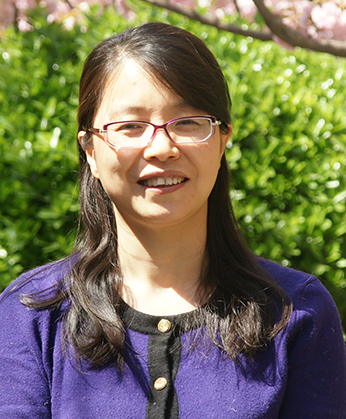 Yufeng Guo is a Professor at Beijing Normal University, China. She is currently a director of the Chinese Mathematical Society, a standing director of the Basic Education Branch of the Chinese Society of Statistical Education, a member of the Mathematics Subcommittee for Degree Evaluation at Beijing Normal University, a member of the International Organization Committee of the 14th International Congress on Mathematical Education, a review expert of the 12th and 13th "Su Buqing Prize for Mathematics Education", and a former deputy director of the Basic Education Committee of the Chinese Mathematical Society. She was awarded the first ZAHNG Dianzhou Mathematics Education Award in 2021, the Tongding Young Teacher Award of Beijing Normal University in 2017, and the National Excellent Instructor of Education Master's degree in 2014. She is currently the Editor-in-Chief of the sub-volume textbook of the High School Mathematics Textbook (Version A) of the People's Education Press. She has published over 80 academic research papers in journals, such as
Tsukuba Journal of Math-education, ZDM-Mathematics Education, AJER, Journal
of Educational Studies (in Chinese), Curriculum, Teaching Material and Method (in Chinese),
Journal of the Chinese Society of Education (in Chinese), Journal of Peking University
(Philosophy and Social Sciences) (in Chinese), Journal of Mathematics Education (in Chinese),
Educational Science Research (in Chinese), Science-Technology & Publication (in Chinese),
Journal of China Examinations (in Chinese), and has independently authored, co-authored and co-edited 13 works.
Yufeng Guo is a Professor at Beijing Normal University, China. She is currently a director of the Chinese Mathematical Society, a standing director of the Basic Education Branch of the Chinese Society of Statistical Education, a member of the Mathematics Subcommittee for Degree Evaluation at Beijing Normal University, a member of the International Organization Committee of the 14th International Congress on Mathematical Education, a review expert of the 12th and 13th "Su Buqing Prize for Mathematics Education", and a former deputy director of the Basic Education Committee of the Chinese Mathematical Society. She was awarded the first ZAHNG Dianzhou Mathematics Education Award in 2021, the Tongding Young Teacher Award of Beijing Normal University in 2017, and the National Excellent Instructor of Education Master's degree in 2014. She is currently the Editor-in-Chief of the sub-volume textbook of the High School Mathematics Textbook (Version A) of the People's Education Press. She has published over 80 academic research papers in journals, such as
Tsukuba Journal of Math-education, ZDM-Mathematics Education, AJER, Journal
of Educational Studies (in Chinese), Curriculum, Teaching Material and Method (in Chinese),
Journal of the Chinese Society of Education (in Chinese), Journal of Peking University
(Philosophy and Social Sciences) (in Chinese), Journal of Mathematics Education (in Chinese),
Educational Science Research (in Chinese), Science-Technology & Publication (in Chinese),
Journal of China Examinations (in Chinese), and has independently authored, co-authored and co-edited 13 works.
Her research interests cover mathematics courses and textbooks, and mathematics educational psychology. She has been conducting research on students' basic mathematical activity experience for more than ten years. In addition, she has accumulated a considerable amount of experience in the research and writing of middle and high school mathematics textbooks.
Prof. Jeremy Hodgen
University College London, UK; Former Editor-in-chief of Research in Mathematics Education
Mathematics reform in England: Lessons, and challenges, for the future
Abstract
In England over the past 40 years there have been various large-scale national initiatives directed at improving teaching and raising attainment in mathematics. These include a National Curriculum, the introduction of national testing, the Primary and Secondary National Strategies and, most recently, the ‘mastery’ initiative. Drawing on analyses of policy and the impact of policy, this talk will consider these reforms, the extent to which they have been successful and the lessons, and challenges, for future reform in England and elsewhere.
Bio sketch
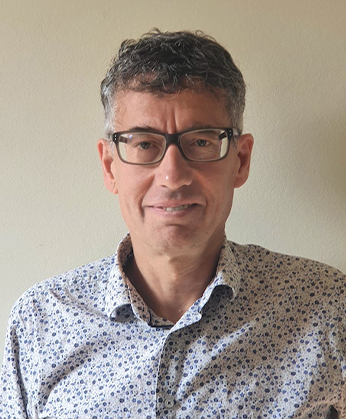 Jeremy Hodgen is a Professor of Mathematics Education at the IOE, UCL’s Faculty of Education and Society, University College London, and Guest Professor at the Norwegian University of Science and Technology (NTNU). He has led numerous research projects include an investigation of low attainment in mathematics at Key Stage 3, effective ways of teaching algebra and multiplicative reasoning, how best to group students, the evaluation of several large-scale randomised controlled trials and several reviews of effective ways to teach mathematics. He has published widely on mathematics teaching and learning, teacher education, assessment, international comparisons and standards over time. His Nuffield Foundation funded reports examining participation in post-16 mathematics have been highly influential on UK government policy.
Jeremy Hodgen is a Professor of Mathematics Education at the IOE, UCL’s Faculty of Education and Society, University College London, and Guest Professor at the Norwegian University of Science and Technology (NTNU). He has led numerous research projects include an investigation of low attainment in mathematics at Key Stage 3, effective ways of teaching algebra and multiplicative reasoning, how best to group students, the evaluation of several large-scale randomised controlled trials and several reviews of effective ways to teach mathematics. He has published widely on mathematics teaching and learning, teacher education, assessment, international comparisons and standards over time. His Nuffield Foundation funded reports examining participation in post-16 mathematics have been highly influential on UK government policy.
He has been a member of the Royal Society’s Advisory Committee on Mathematics Education (ACME) and Chair of the British Society for the Learning of Mathematics, is currently a member of ACME’s Post-16 Contact Group and is a member of the Joint Mathematical Council of the UK’s Working Group on Digital Technology. He edited the international journal, Research in Mathematics Education, from 2011 until 2018. He is currently a member of the Expert Advisory Group advising the UK Prime Minister on extending the study of mathematics to age 18. Prior to his academic career, he taught mathematics in primary and secondary schools in London.
Prof. Frederick K. S. Leung
University of Hong Kong, Chinese Hong Kong; President of the International Commission on Mathematical Instruction
What Mathematics Should Mathematics Teachers Know?
Abstract
What mathematics should mathematics teachers know is a question that has long been a concern for teacher educators and researchers in teacher education. Since Klein proposed the idea of Elementary Mathematics from an Advanced Standpoint in the early 20th Century, and Shulman’s proposal of the concept of Pedagogical Content Knowledge (PCK) in the 1980s, this issue has been extensively studied, but there is still no consensus among scholars. Based on two research projects on teachers’ mathematical knowledge, this report analyses what mathematics teachers know and what they should know by providing examples from different content domains and grade levels, and on the connections between different dimensions and levels of mathematical knowledge. The report identifies the critical importance of mathematical content knowledge in comparison to other forms of knowledge (e.g., pedagogical knowledge), supplementing past literature on this issue. The report concludes by stressing the importance of teachers' reflection on mathematical knowledge.
Bio sketch
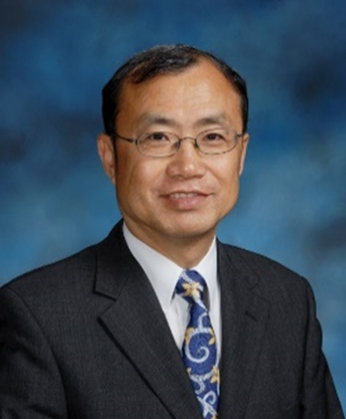 Frederick K. S. Leung, BBS, Chair Professor and Kintoy Professor in Mathematics Education at the University of Hong Kong, is Chairman of the Board of the Faculty of Education in the University. He was Dean of the Faculty of Education from 1996 to 2002, and Dean of the Graduate School between 2019 and 2021. Professor Leung’s major research interests are in the comparison of mathematics education in different countries, and in the influence of different cultures on teaching and learning. He is the national project manager for Hong Kong in OECD’s
Programme for International Student Assessment (PISA), and was principal investigator of the Hong Kong component of the
Trends in International Mathematics and Science Study (TIMSS), TIMSS Video Study, and
Learner’s Perspective Study (LPS). Professor Leung publishes widely in the field of mathematics education, and was one of the editors for the
Second International Handbook on Mathematics Education and the Third International
Handbook on Mathematics Education published by Springer. He was also international consultant for a number of World Bank, UNESCO and United Nations Development Programme (UNDP) projects in education. Professor Leung was appointed a Senior Fulbright Scholar in 2003, and was awarded the prestigious Hans Freudenthal Medal for 2013. He was named a Changjiang Scholar by the Ministry of Education, China in 2014, and he received the World Outstanding Chinese Award in 2015. Professor Leung was awarded a Bronze Bauhinia Star (BBS) by the Hong Kong SAR Government in 2017 for his contributions in mathematics education, and was conferred an Honorary membership by the International Association for the Evaluation of Academic Achievement (IEA) in 2019. Professor Leung is currently the President of the International Commission on Mathematical Instruction (ICMI).
Frederick K. S. Leung, BBS, Chair Professor and Kintoy Professor in Mathematics Education at the University of Hong Kong, is Chairman of the Board of the Faculty of Education in the University. He was Dean of the Faculty of Education from 1996 to 2002, and Dean of the Graduate School between 2019 and 2021. Professor Leung’s major research interests are in the comparison of mathematics education in different countries, and in the influence of different cultures on teaching and learning. He is the national project manager for Hong Kong in OECD’s
Programme for International Student Assessment (PISA), and was principal investigator of the Hong Kong component of the
Trends in International Mathematics and Science Study (TIMSS), TIMSS Video Study, and
Learner’s Perspective Study (LPS). Professor Leung publishes widely in the field of mathematics education, and was one of the editors for the
Second International Handbook on Mathematics Education and the Third International
Handbook on Mathematics Education published by Springer. He was also international consultant for a number of World Bank, UNESCO and United Nations Development Programme (UNDP) projects in education. Professor Leung was appointed a Senior Fulbright Scholar in 2003, and was awarded the prestigious Hans Freudenthal Medal for 2013. He was named a Changjiang Scholar by the Ministry of Education, China in 2014, and he received the World Outstanding Chinese Award in 2015. Professor Leung was awarded a Bronze Bauhinia Star (BBS) by the Hong Kong SAR Government in 2017 for his contributions in mathematics education, and was conferred an Honorary membership by the International Association for the Evaluation of Academic Achievement (IEA) in 2019. Professor Leung is currently the President of the International Commission on Mathematical Instruction (ICMI).
Prof. Takeshi Miyakawa
Waseda University, Japan; Associate editor of Journal of Mathematics Teacher Education
Studying the cultural aspect of Japanese mathematics teaching and learning from a perspective of the Anthropological Theory of the Didactic
Abstract
The aim of this talk is to advance understanding how we can characterize and analyze mathematics teaching and learning in a way to elucidate the cultural specificities involved in a specific context of mathematics education. A theoretical reflection will be first developed to illustrate a framework and methodology to study the cultural aspect of mathematics teaching and learning by adopting a perspective developed within the Anthropological Theory of the Didactic. Specifically, the concepts of didactic paradigm and didactic model proposed within ATD will be discussed and further elaborated in the Japanese cases to characterize mathematics teaching including the cultural elements that are implicitly or explicitly taken into consideration when designing and implementing mathematics lessons. This theoretical reflection will be followed by a presentation of the international comparative study of mathematics lessons between Switzerland and Japan, which clearly exemplifies the existence of specific didactic paradigms and models (e.g., Japanese structured problem-solving lesson) behind the design and implementation of mathematics lessons and their effects on shaping the cultural specificities of mathematics lesson.
Bio sketch
 After his studies of mathematics and mathematics education at the University of Tsukuba in Japan, Takeshi Miyakawa earned his doctorate in didactics of mathematics from Université Joseph Fourier at Grenoble, France in 2005. He spent several years as a postdoctoral fellow in Japan (Tsukuba) and in US (Michigan), before serving as an associate professor of mathematics education at Joetsu University of Education in Japan. Since 2019, he hods the position of full professor at Waseda University in Tokyo.
After his studies of mathematics and mathematics education at the University of Tsukuba in Japan, Takeshi Miyakawa earned his doctorate in didactics of mathematics from Université Joseph Fourier at Grenoble, France in 2005. He spent several years as a postdoctoral fellow in Japan (Tsukuba) and in US (Michigan), before serving as an associate professor of mathematics education at Joetsu University of Education in Japan. Since 2019, he hods the position of full professor at Waseda University in Tokyo.
Professor Miyakawa’s research interest is twofold: on the one hand, teaching and learning of proof, which have been his research topic since his doctoral studies; on the other hand, mathematics teacher knowledge and its learning in teachers’ collective work such as lesson studies in Japan. His research often adopts the international comparative perspective to elucidate cultural aspects of mathematics education.
Professor Miyakawa’s contributions extend beyond the national context. He has been actively involved in a variety of international scientific activities of mathematics education research: The editorial or advisory board members of international journals such as
Educational Studies in Mathematics, For the Learning of Mathematics, and Journal of
Mathematical Behavior; the associate editors of Journal of Mathematics Teacher
Education and Hiroshima Journal of Mathematics Education; and the members of the international program committee (IPC) for ICME-14 and ICMI Study 25.
Prof. Susanne Prediger
TU Dortmund University, Germany; Editor-in-chief of Educational Studies in Mathematics
Bridging language for developing conceptual understanding: A research journey
Abstract
Since more than 40 years, researchers have discovered that language is crucial for mathematics learning. But what exactly is needed for developing conceptual understanding, and how can we develop students’ language? The talk presents research approaches and findings from a 16 year-long journal of research on enhancing language that led to an empirically grounded theory for language-responsive mathematics classrooms.
Bio sketch
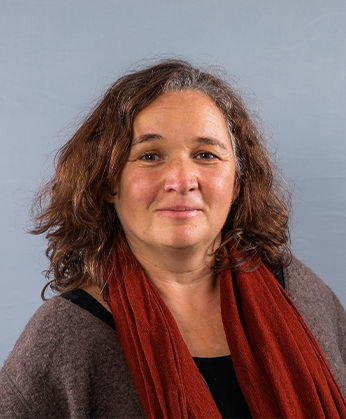 Susanne Prediger is full professor for Mathematics Education Research and PD Research at TU Dortmund University in Germany. She is director of the newly established DZLM, the German National Center for Mathematics Teacher Education at IPN Leibniz Institute for Science and Mathematics Education. Since 16 years, she investigates the role of language and has coined the term language-responsive mathematics classrooms. She has published over 100 papers in peer-reviewed journals, was involved in four international projects and leads several national research projects with various research approaches, design research, randomized controlled trials, and implementation studies. She was president of the European Society for
Research in Mathematics Education, is member of the ICMI executive committee and Co-Editor-in-Chief of
Educational Studies in Mathematics.
Susanne Prediger is full professor for Mathematics Education Research and PD Research at TU Dortmund University in Germany. She is director of the newly established DZLM, the German National Center for Mathematics Teacher Education at IPN Leibniz Institute for Science and Mathematics Education. Since 16 years, she investigates the role of language and has coined the term language-responsive mathematics classrooms. She has published over 100 papers in peer-reviewed journals, was involved in four international projects and leads several national research projects with various research approaches, design research, randomized controlled trials, and implementation studies. She was president of the European Society for
Research in Mathematics Education, is member of the ICMI executive committee and Co-Editor-in-Chief of
Educational Studies in Mathematics.
Prof. Trena Wilkerson
Baylor University, USA; Former president of the National Council of Teachers of Mathematics
Mathematics Education: Recent Work in Connecting Research and Classroom Practice Related to the Teaching and Learning of Mathematics in the United States
Abstract
Considering trends of research conducted in mathematics education in the United States over the past 10 years, particularly related to teaching and learning of mathematics in the K-12 classroom, it is essential that we examine the connections or lack of connections, between research and practice, the impact of research on practice, the impact of practice on research, and future directions of research and practice. We will use the lens of the four recommendations related to needs in mathematics teaching and learning as identified by the National Council of Teachers of Mathematics in the Catalyzing Change Series (2018, 2020) to frame this session. These recommendations include 1) broadening the purposes of mathematics, 2) creating equitable structures in mathematics, 3) implementing equitable mathematics instruction, and 4) developing a deep understanding of mathematics.
Bio sketch
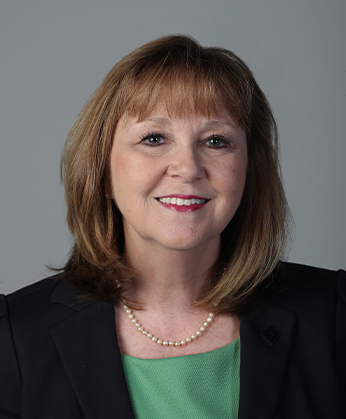 Trena Wilkerson is the immediate Past-President of the National Council of Teachers of Mathematics (NCTM) during 2020-2022. She is also Professor of Mathematics Education in the Department of Curriculum and Instruction in the School of Education at Baylor University and is currently Interim Department Chair. She previously taught high school mathematics for 18 years.
Trena Wilkerson is the immediate Past-President of the National Council of Teachers of Mathematics (NCTM) during 2020-2022. She is also Professor of Mathematics Education in the Department of Curriculum and Instruction in the School of Education at Baylor University and is currently Interim Department Chair. She previously taught high school mathematics for 18 years.
Professor Wilkerson received the Award for Excellence in Integrating Science and
Mathematics from the School Science Mathematics Association (SSMA) for her role as Director of the GEAR UP (Gaining Early Awareness and Readiness for Undergraduate Programs) Math Initiative funded by the U.S. Department of Education. In 2022 as President of NCTM she participated in
the 14th International Congress on Mathematical Education -Shanghai, China and accepted the International Commission on Mathematical Instruction Emma Castelnuovo Award for Excellence in the Practice of Mathematics Education given to NCTM for their work in mathematics education. Professor Wilkerson’s research interests include mathematics education, teacher education, algebra teacher efficacy, teaching and learning of mathematics, and professional development. She has published extensively in several NCTM journals, including
Mathematics Teaching in the Middle School (MTMS), Mathematics Teacher, Teaching
Children Mathematics, Mathematics Teacher: Learning and Teaching PK-12 and Journal for
Research in Mathematics Education. She chaired the MTMS Editorial Panel and previously served a three-year term on the NCTM Board of Directors from 2014–17. She has also published in other mathematics education research journals such as
Investigations in Mathematics Learning, International Journal for Lesson and Learning
Studies, School Science Mathematics Journal, and Electronic Journal of Research in
Mathematics and Science Education.
Dr. Yan Zhu
East China Normal University, China; Winner of the Second ZHANG Dianzhou Award in Mathematics Education
Gender Equity in Chinese Mathematics Education
Abstract
Equity in education has been a concern of almost all countries, whether developed, transitional, or in the progress of developing. Within the field of mathematics education research, gender was historically the initial dimension of equity researched widely, and later served as the springboard for emphases on, or in combination with, the other dimensions of equity. This presentation mainly introduces two studies. Study 1 aims to study an overall role of gender on Chinese students’ mathematics attainment from a perspective of four social factors (i.e., socioeconomic status, school level, school types, and school location) via a secondary analysis of PISA 2015 mathematics data from China B-S-J-G (represented by four regions/cities). Study 2 examines the direction and magnitude of the trend of gender differences in mathematics test of the highest level in Chinese secondary school using the test scores of all CMO finalists from 2004 to 2023, using Mann-Kendall trend test and meta-analysis etc. The presentation closes with discussions on societal and educational implications about these gender disparities in the current school system of China.
Bio sketch
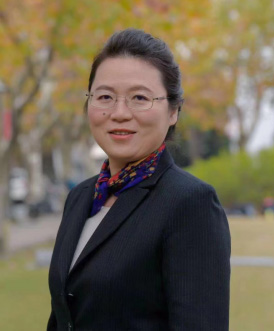 Yan Zhu, Ph.D. from Nanyang Technological University of Singapore, has worked in Singapore and Hong Kong for many years and is now an associate professor at the College of Teacher Education, East China Normal University. She was sponsored by the CSC to visit the University of Illinois at Urbana-Champaign, and the German "Humboldt Senior Scholar" research fund to visit the University of Hamburg for cooperative research. Her main research areas include educational equity, international comparative studies, measurement and evaluation of mathematics, mathematical modelling, and mathematics curriculum and textbook research. She participated in the writing of mathematics textbooks for middle and high schools in Shanghai. She has been invited to participate in the writing of
How Chinese Learn Mathematics,
How Chinese Teach Mathematics, etc. and she also published many papers in important journals of mathematics education at home and abroad.
Yan Zhu, Ph.D. from Nanyang Technological University of Singapore, has worked in Singapore and Hong Kong for many years and is now an associate professor at the College of Teacher Education, East China Normal University. She was sponsored by the CSC to visit the University of Illinois at Urbana-Champaign, and the German "Humboldt Senior Scholar" research fund to visit the University of Hamburg for cooperative research. Her main research areas include educational equity, international comparative studies, measurement and evaluation of mathematics, mathematical modelling, and mathematics curriculum and textbook research. She participated in the writing of mathematics textbooks for middle and high schools in Shanghai. She has been invited to participate in the writing of
How Chinese Learn Mathematics,
How Chinese Teach Mathematics, etc. and she also published many papers in important journals of mathematics education at home and abroad.